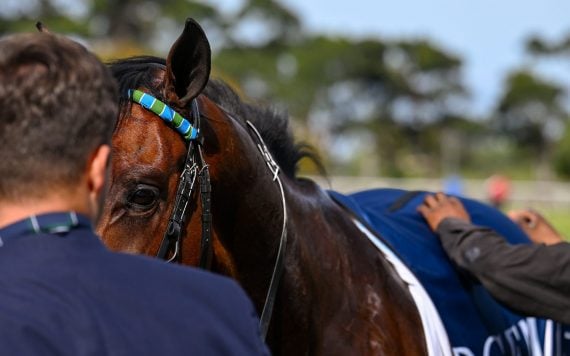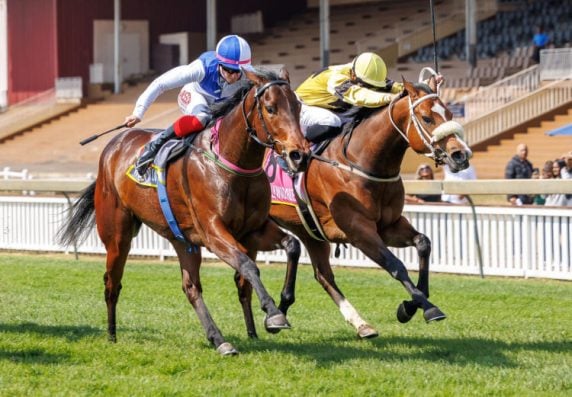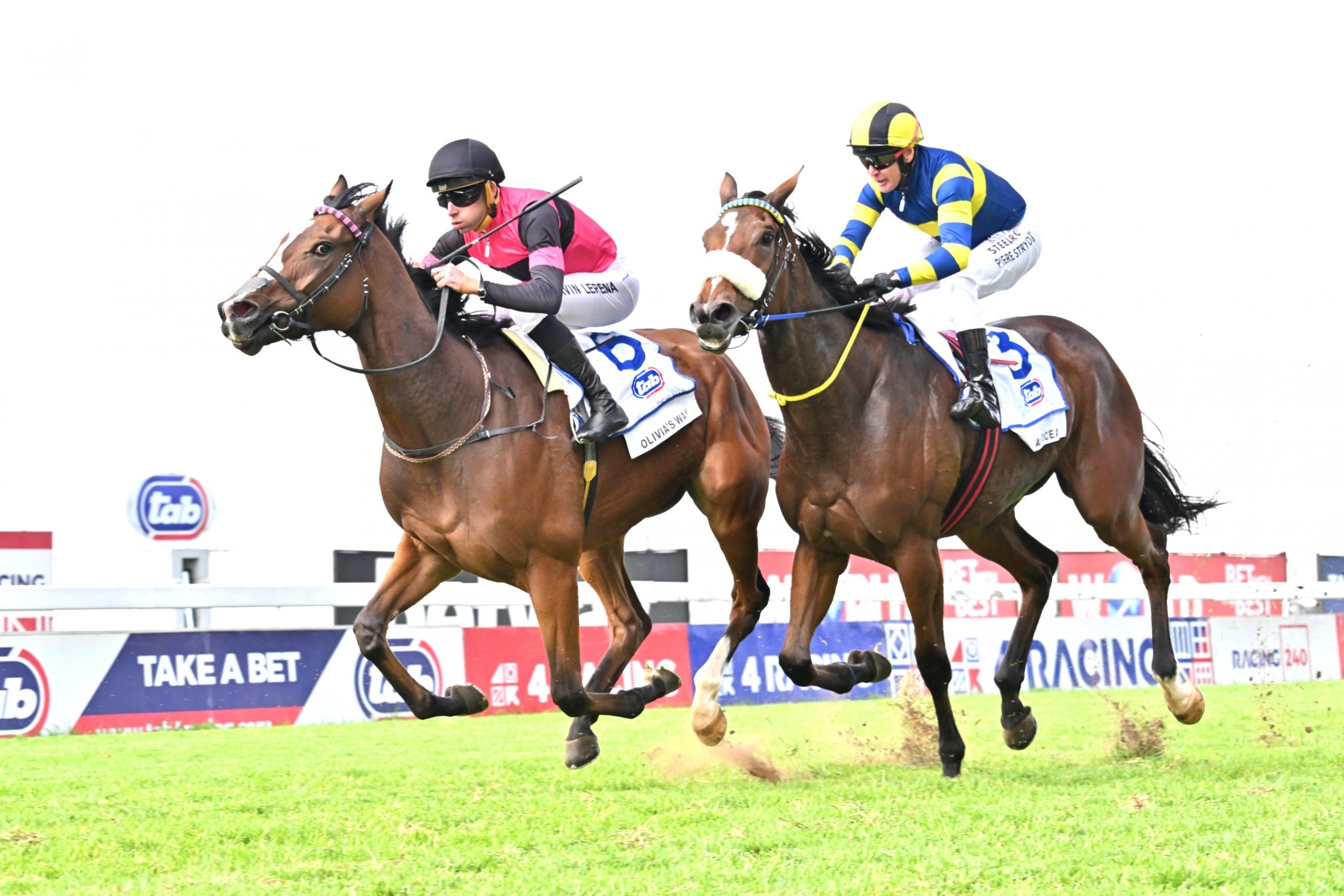There has been a certain amount of noise on the chat sites regarding Formgrids lately. So I thought I’d catch up with Formgrids founder, David Safi, to find out more.
About David
David originally harboured dreams of being a jockey, but weight problems put paid to any race riding ambitions pretty early on. However, he stayed closely associated with the industry and gained work experience in race yards in the USA (including Charlie Whittingham in California and Glen Wismer in Florida). Having formed a few ideas on how he thought racing should be run, he returned to South Africa in 1986. David describes himself as ‘a full time player’ until about 1997, when he got fed up with the “shoddy outlook from powers controlling the industry”. But I’m jumping ahead slightly.
SARGA
After an incident involving a race favourite rearing up and hurting itself in the pens, being instructed by the course vet to run anyway and finishing last, David lodged a complaint to the chief stipe after race, asking for the injured horse to be declared a non-runner so that punters could be refunded and was reportedly told to “shut up or you will be thrown off the racecourse”.
The incident galvanised David into action to fight for the rights of punters and he established The South African Racegoers Association (SARGA) in 1986, becoming the organisation’s first Chairman. He describes SARGA as “a body formed for the betterment of racing and to give a mouthpiece to the punter”. Warming to his subject, he continues “Punters fill up the pools, and the take-out from the betting pools forms the lifeblood of racing and look how we are treated !
David says “Back then, we were operating under the Jockey Club era, in the days when information on runners in races was considered privileged. SARGA was a body that believed in spreading information”. This did not sit well with the authorities. “Back then the Jockey Club was a powerful, controlling force within the industry and we were met with strong resistance and opposition. Although there was support from the individual man on the street as well as some owners and trainers, no-one wanted to support us publicly for fear of victimisation.
But David is not a man afraid to speak his mind and gained a reputation as something of a champion of the punter. In the mid 80’s, David appeared on mid-week TV programme Network hosted by John Bishop. Along with racing journalist Peter Duffield, he publicly bumped heads with George Morrison (then head of the Jockey Club) & Colin Dunn (then head of the TAB), predicting that should the culture of disregard for the punter be allowed to continue, the industry would be on its knees in a handful of years. Safi and Duffield claimed that harmful incidents (such as the injured favourite being made to run) were damaging the public perception of horseracing and that left unchecked, would lead to the mass exodus of punters from the game, ultimately leading to the downfall of the industry as a whole (incidentally, the Jockey Club would subsequently accuse the SABC of biased reporting and win a ruling from the Media Council).
Then there was the Flaming Gun incident. On the afternoon of 1 August 1999, Willie Uys was riding odds-on favourite Flaming Gun in the 4th race of the afternoon at Gosforth Park. He duly produced the goods to win the race. However, Uys weighed out at 57,5kg but mysteriously weighed back in at 56,7kg. The clerk of scales lodged an objection which was upheld by the stipendiary stewards. Despite an appeal from punters to declare the horse a non-runner, the decision was taken to disqualify Flaming Gun, rendering all tickets null and void. Race 4 was the first leg of the Pick Six and David joined angry punters in staging a protest resulting in the rest of the meeting being abandoned.
You can sort of see why he wasn’t too popular….
Formgrids – the Early Years
As an avid punter and lover of the racing game, David felt the lack of information in South Africa most keenly. He explains that in most sporting contests, there are two opposing sides or competitors to assess and even then it is quite a complex process to weigh and evaluate the necessary information in order to pick a winner. With racing, variables include the course, the going, the weather, the trainer and the jockey. Factor in the vagaries of the animal you are betting on (of which there can be anywhere up to 20) and you are looking at a complex mass of information, which adds substantially to the degree of difficulty. Add in the MR system, funny race conditions, weight-for-age allowances, and about a gazillion different race types and it’s not hard to see that it’s not called the brain game for nothing ! So David set about designing and developing a tool to assist with assimilating and interpreting all the available information – and so Formgrids was born.
In its early incarnation, David used Formgrids as a private form studying tool for his personal use. However, it was so successful that he expanded its use to local betting syndicates and staged several high profile betting coups.
It then evolved into a printed version and finally made the leap onto the world wide web around 7 years ago, where it has literally exploded.
I Get By With A Little Help From My Friends
Although the programme has become an indispensable industry tool, David says that despite numerous appeals to the operators, he receives very little cooperation from them in terms of sharing information and says that he has to extract the majority of the Formgrids data manually. This is particularly frustrating as David currently offers the programme for free and feels that he’s adding value to the industry as a whole and in fact, contributing to turnover.
Tex Lerena, head of the Jockey Association recently asked whether the nominations could be published on Formgrids too. When David approached the operators he was turned down. The operators reasoning? They are reluctant to support a product that can be used to support the Open Bet.
Which is fair enough, I guess. However, David says that the operators have stipulated that they do not wish him to enter into any joint venture with a bookmaker and that they have even gone so far as to threaten to shut him down entirely should he choose to do so.
And so it seems the more things change, the more they stay the same.
David says that despite several offers, he has held off doing a deal with a bookmaker until now in order to support the Tote. However, having run Formgrids entirely at his own cost for the past 7 years, he is now looking at alternatives.
The Proof of the Pudding Is In The Eating
Endorsements have come from all corners of the industry including trainers such as Mike de Kock, Dean Kannemeyer, Stan Elley, jockeys Anton Marcus, Andrew Fortune, Kevin Shea and Sean Cormack, Zim champion jockey Quinton Riddel, jockey agents Ray Curling, Rob Champion and Frank Zackey, a plethora of racing personalities such as Andrew Bonn, Shaheen Shaw, Vee Moodley, Nico Kritsiotis, Tex Lerena, John Sweet, Alec Hogg and punters up and down the country.
Odd then that it is not embraced by the people whose product it promotes.
David says he would very much like the industry to help finance the programme and in particular to assist with Tellytrack exposure. He has approached the Racing Trust for funding but has been turned down on the basis that the Racing Trust funds projects such as AHS research, transformation projects such as the grooms schools, the Jockey Academy, etc and Formgrids was not considered suitably meritorious. So as the matter stands, the authorities expect David to develop and advertise a programme that promotes their product. The words ‘cake’ and ‘eating it’ spring to mind….
David says it simply defeats common sense – there is only so much you can squeeze out of the lemon before it runs dry.
So what of the Racing Trust ?
When I approached Larry Wainstein for comment on behalf of the Racing Trust, his response was that Formgrids “is a form guide for all punters and does not guarantee increased tote turnover which funds the stakes pot” and that the funding would not justify the return.
But the Operators fund the publication of Computaform. Which is a form guide for punters. Which does not guarantee increased tote turnover..
Handsome is as Handsome Does
Racing has a long and colourful history. Of course you cannot have light and colour without shading and hard edges and I think it’s fair to say that the South African industry enjoys a fair balance of both. It is a game where decisions are all too easily influenced by wealth, power and ego – characteristics which seldom make comfortable bedfellows with conflicts of opinion. And we have a pretty poor track record of dealing with conflict. Non-conformists are branded black sheep, lunatics, or quietly blackballed, stonewalled and ignored until they go away. History reflects that we have often paid the price by alienating the very people who have the most energy, enthusiasm and passion to contribute to the game.
The state of the game dictates (and the statistics bear it out) that people are leaving racing in their droves. Which in turn means that there are fewer and fewer people left to steer the ship. It is not an enviable task by any means, but single party states can be bleak and unfertile places for innovative and creative minds, where the safest option to ensure your salary cheque is to maintain the status quo.
TS Eliot
There is a quote from TS Eliot (which I’ve possibly mangled somewhat) that one needs to be always rebuilding the temple. I think it’s fair, if not patently obvious, that we are an industry in distress. We do not charge entry to the races anymore and with precious little in the way of sponsorship (and what little we have in danger of going *poof*), we are heavily reliant on betting turnover (as we are reminded at every turn). Given the pivotal or perhaps even critical state of our industry, which a senior member described recently as being ‘at a crossroads’, now should be a time to consolidate and nurture what we have. There are an awful lot of problems that need addressing, but surely if there was ever a time to look after our existing customer base it should be now?
The authorities might not feel that Formgrids offers value for money in terms of attracting new players to the game, a lot of users (including Operator employees), would appear to think it adds a terrific amount of value to the punting product.
So does the funding really not match the return, or are we perhaps punishing the (brain) child for the deeds of the father?
Either way, RA Chairman Larry Wainstein perhaps puts it best when he says “I believe Formgrids is useful for punters and a lot of people believe it is valuable.” If this is the case why does all the industry not contribute?








